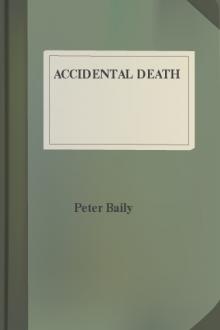Eco: Foucalt's Pendulum by eco foucault (important books to read .txt) 📗

- Author: eco foucault
Book online «Eco: Foucalt's Pendulum by eco foucault (important books to read .txt) 📗». Author eco foucault
Then, as our Diabolicalscame and went, the memory of Salon faded, was lost among hissimilars.
One day, Aglie came tothe office to report on some manuscripts Belbo had sent him. Hisopinions were precise, severe, comprehensive. Aglie was clever; itdidn't take him long to figure out the Garamond-Manutius doublegame, and we now talked openly in front of him. He understood: hewould destroy a text with a few sharp observations, then remarkwith smooth cynicism that it would be fine for Manutius.
I asked him what hecould tell me about Agarttha and Saint-Yves d'Alveydre.
"Saint-Yvesd'Alveydre..." he said. "A bizarre man, beyond any doubt. From hisyouth he spent time with the followers of Fabre d'Olivet. He becamea humble clerk in the Ministry of the Interior, but ambitious...Wenaturally took a dim view of his marriage toMarie-Victoire..."
Aglie couldn't resistshifting to the first person, as if he were reminiscing.
"Who was Marie-Victoire?I love gossip," Belbo said. "Marie-Victoire de Risnitch, verybeautiful when she was the intimate of the empress Eugenic. But bythe time she met Saint-Yves, she was over fifty. And he was in hisearly thirties. For her, a mesalliance, of course. What's more, togive him a title, she bought some property¡XI can't rememberwhere¡Xthat had belonged to a certain Marquis d'Alveydre. So, whileour unscrupulous character boasted of his title, in Paris they sangsongs about the gigolo. Since he could now live off his income, hedevoted himself to his dream, which was to find a political formulathat would lead to a harmonious society. Synarchy, as opposed toanarchy. A European society governed by three councils,representing economic power, judicial power, and spiritualpower¡Xthe Church and the scientists, in other words. Anenlightened oligarchy that would eliminate class conflicts. We'veheard worse." "What about Agarttha?"
"Saint-Yves claimed tohave been visited one day by a mysterious Afghan, a man named HadjiScharipf, who can't have been an Afghan, because the name isclearly Albanian...This man revealed to him the secret dwellingplace of the King of the World, though Saint-Yves himself neverused that expression he called it Agarttha, the place that cannotbe found." "Where did he write this?"
"In his Mission deI'lnde en Europe, a work that, incidentally, has influenced a greatdeal of contemporary political thought. In Agarttha there areunderground cities, and below them, closer to the center, live thefive thousand sages that govern it. The number five thousandsuggests, of course, the hermetic roots of the Vedic language, asyou gentlemen know. And each root is a magic hierogram connected toa celestial power and sanctioned by an infernal power. The centraldome of Agarttha is lighted from above by something like mirrors,which allow the light from the planet's surface to arrive onlythrough the enharmonic spectrum of colors, as opposed to the solarspectrum of our physics books, which is merely diatonic. The wiseones of Agarttha study all holy languages in order to arrive at theuniversal language, which is Vattan. When they come upon mysteriestoo profound, they levitate, and would crack their skulls againstthe vault of the dome if their brothers did not restrain them. Theyforge the lightning bolts, they guide the cyclic currents of theinterpolar and intertropical fluids, the interferential extensionsin the different zones of the earth's latitude and longitude. Theyselect species and have created small animals with extraordinarypsychic powers, animals which have a tortoise shell with a yellowcross, a single eye, and a mouth at either end. And polypod animalswhich can move in all directions. Agarttha is probably where theTemplars found refuge after their dispersion, and where theyperform custodial duties. Anything else?"
"But...was he serious?"I asked.
"I believe he was. Atfirst, we considered him a fanatic, but then we realized that hewas referring, perhaps in a visionary, figurative way, to an occultdirection of history. Isn't it said that history is a bloodstainedand senseless riddle? No, impossible; there must be a Design. Theremust be a Mind. That is why over the centuries men far fromignorant have thought of the Masters or the King of the World notas physical beings but as a collective symbol, as the successive,temporary incarnation of a Fixed Intention. An Intention with whichthe great priestly orders and the vanished chivalries were intouch."
"Do you believe this?"Belbo asked.
"Persons more balancedthan d'Alveydre seek the Unknown Superiors."
"And do they findthem?"
Aglie laughed, as if tohimself. "What sort of Unknown Superiors would they be if theyallowed the first person who comes along to know them? Gentlemen,we have work to do. There is one more manuscript here and¡Xwhat acoincidence!¡Xit's a treatise on secret societies."
"Any good?" Belboasked.
"Perish the thought. Butit could do for Manutius."
53
Unable to controldestinies on earth openly because governments would resist, thismystic alliance can act only through secret societies...These,gradually created as the need for them arises, are divided intodistinct groups, groups seemingly in opposition, sometimesadvocating the most contradictory policies in religion, politics,economics, and literature; but they are all connected, all directedby the invisible center that hides its power as it thus seeks tomove all the scepters of the earth.
¡XJ. M. Hoene-Wronski,quoted by P. Sedir, Histoire et doctrine des Rose-Croix,Bibliotheque des Hermetistes, Paris, 1910
One day I saw SignorSalon at the door of his laboratory. Suddenly, for no reason, Iexpected him to hoot like an owl. He greeted me as if I were an oldfriend and asked how things were going at work. I made anoncommittal gesture, smiled at him, and hurried on.
I was struck again bythe thought of Agarttha. Saint-Yves's ideas, as Aglie had explainedthem, might be fascinating to a Diabolical¡Xbut certainly notalarming. And yet in Salon's words and in his face, when we met inMunich, there had been alarm.
So, as I went out, Idecided to drop in at the library and look for La Mission de I'lndeen Europe.
There was the usual mobin the catalog room and at the call desk. With some shoving I gothold of the drawer I needed, found the call number, filled out aslip, and handed it to the clerk. He informed me that the book hadbeen checked out¡X and, as usual in libraries, he seemed to enjoygiving me this news. But at that very moment a voice behind mesaid, "Actually, it





Comments (0)